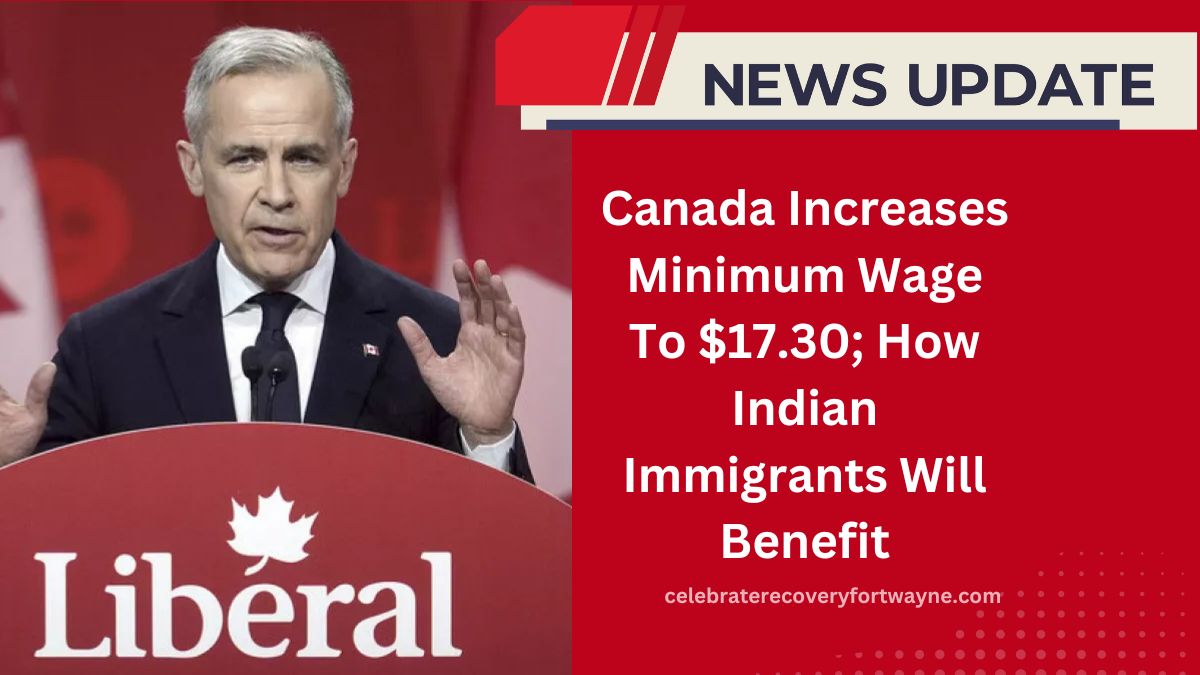On April 1, 2025, Canada witnessed an increase in its federal minimum wage, rising to $17.30 per hour. This wage increase is part of a broader initiative aimed at ensuring fair wages for workers across the country.
Alongside the federal adjustment, several provinces have also raised their minimum wages, benefiting a wide range of workers, including Indian immigrants, who constitute a significant portion of Canada’s workforce.
This article will dive into the details of the minimum wage hike, the sectors affected, and how Indian immigrants will specifically benefit from these changes.
Federal Minimum Wage Update: What You Need to Know
As of April 1, 2025, the federal minimum wage has risen from $17.30 to $17.75 per hour, marking a 2.4% increase.
This wage adjustment affects those working in federally regulated industries, such as banks, postal services, telecommunications, and transport sectors across air, rail, road, and marine.
This wage increase is crucial for employees in these sectors, ensuring that their pay keeps up with the cost of living adjustments based on inflation trends.
Federal Minimum Wage Changes
| Region | Previous Minimum Wage | New Minimum Wage | Percentage Increase |
|---|---|---|---|
| Federal Minimum Wage | $17.30 | $17.75 | 2.4% |
How the Minimum Wage Is Adjusted: Inflation Link
The federal minimum wage is adjusted every April based on the Consumer Price Index (CPI), which measures the average change in the price of goods and services over time.
The 2.4% increase for 2025 is based on the average CPI for 2024, aligning wage growth with inflation to help workers maintain purchasing power. This automatic adjustment process ensures that wages reflect the rising cost of living.
Provincial and Territorial Changes: What to Expect
In addition to the federal minimum wage increase, four provinces have also raised their minimum wages:
- Nova Scotia: Increased from $15.30 to $15.65 per hour
- Newfoundland and Labrador: Raised from $15.60 to $16.00 per hour
- New Brunswick: Increased from $15.30 to $15.65 per hour
- Yukon: Increased from $17.59 to $17.94 per hour
This marks a crucial step toward achieving a more balanced wage distribution across Canada. While these increases are significant, some provinces and territories have yet to announce changes, with many continuing to review their rates.
Provincial Minimum Wage Changes
| Province/Territory | Previous Minimum Wage | New Minimum Wage | Percentage Increase |
|---|---|---|---|
| Nova Scotia | $15.30 | $15.65 | 2.3% |
| Newfoundland and Labrador | $15.60 | $16.00 | 2.6% |
| New Brunswick | $15.30 | $15.65 | 2.3% |
| Yukon | $17.59 | $17.94 | 2.0% |
Impact on Indian Immigrants in Canada
Indian immigrants make up a significant portion of Canada’s workforce, with recent statistics showing that approximately 22% of Canada’s temporary foreign workers are of Indian origin.
Additionally, over 1.35 million people in Canada identify as being of Indian descent. These workers are poised to benefit from the wage increase, particularly those in federally regulated sectors and industries affected by the provincial wage changes.
Indian immigrants in Canada often work in sectors such as retail, healthcare, construction, and the hospitality industry.
With higher wages, these workers will experience an improved standard of living, which may further encourage new immigrants to consider Canada as a prime destination for work and settlement.
Where Wages Remain Unchanged
In some provinces and territories, there has been no change in the minimum wage for the time being. However, these regions continue to review their rates, and changes may occur in the near future.
Notably, Nunavut still holds the highest minimum wage in Canada at $19.00 per hour, with Yukon closely following with its new rate of $17.94 per hour.
The minimum wage increase in Canada serves as a significant step in ensuring a fairer economy. With inflation-adjusted wages and provincial increases, workers, including Indian immigrants, will benefit from improved financial stability.
This wage boost not only impacts Canada’s economy but also plays a role in reducing income inequality across the country, contributing to the growth of a more equitable society.
FAQs
What is the new federal minimum wage in Canada as of April 1, 2025?
The federal minimum wage in Canada has increased to $17.75 per hour as of April 1, 2025.
Which provinces have raised their minimum wage?
Nova Scotia, Newfoundland and Labrador, New Brunswick, and Yukon have raised their minimum wages in 2025.
How does the minimum wage increase benefit Indian immigrants in Canada?
Indian immigrants, a significant portion of Canada’s workforce, will benefit from the wage increase, particularly those working in federally regulated sectors and other industries.




